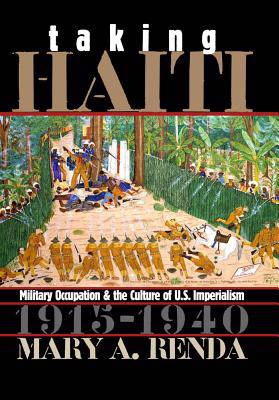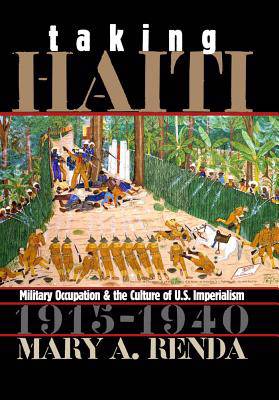
- Afhalen na 1 uur in een winkel met voorraad
- Gratis thuislevering in België vanaf € 30
- Ruim aanbod met 7 miljoen producten
- Afhalen na 1 uur in een winkel met voorraad
- Gratis thuislevering in België vanaf € 30
- Ruim aanbod met 7 miljoen producten
Zoeken
€ 57,95
+ 115 punten
Omschrijving
The U.S. invasion of Haiti in July 1915 marked the start of a military occupation that lasted for nineteen years -- and fed an American fascination with Haiti that flourished even longer. Exploring the cultural dimensions of U.S. contact with Haiti during the occupation and its aftermath, Mary Renda shows that what Americans thought and wrote about Haiti during those years contributed in crucial and unexpected ways to an emerging culture of U.S. imperialism.
At the heart of this emerging culture, Renda argues, was American paternalism, which saw Haitians as wards of the United States. She explores the ways in which diverse Americans -- including activists, intellectuals, artists, missionaries, marines, and politicians -- responded to paternalist constructs, shaping new versions of American culture along the way. Her analysis draws on a rich record of U.S. discourses on Haiti, including the writings of policymakers; the diaries, letters, songs, and memoirs of marines stationed in Haiti; and literary works by such writers as Eugene O'Neill, James Weldon Johnson, Langston Hughes, and Zora Neale Hurston.
Pathbreaking and provocative, Taking Haiti illuminates the complex interplay between culture and acts of violence in the making of the American empire.
At the heart of this emerging culture, Renda argues, was American paternalism, which saw Haitians as wards of the United States. She explores the ways in which diverse Americans -- including activists, intellectuals, artists, missionaries, marines, and politicians -- responded to paternalist constructs, shaping new versions of American culture along the way. Her analysis draws on a rich record of U.S. discourses on Haiti, including the writings of policymakers; the diaries, letters, songs, and memoirs of marines stationed in Haiti; and literary works by such writers as Eugene O'Neill, James Weldon Johnson, Langston Hughes, and Zora Neale Hurston.
Pathbreaking and provocative, Taking Haiti illuminates the complex interplay between culture and acts of violence in the making of the American empire.
Specificaties
Betrokkenen
- Auteur(s):
- Uitgeverij:
Inhoud
- Aantal bladzijden:
- 432
- Taal:
- Engels
- Reeks:
Eigenschappen
- Productcode (EAN):
- 9780807849385
- Verschijningsdatum:
- 18/06/2001
- Uitvoering:
- Paperback
- Formaat:
- Trade paperback (VS)
- Afmetingen:
- 156 mm x 236 mm
- Gewicht:
- 644 g

Alleen bij Standaard Boekhandel
+ 115 punten op je klantenkaart van Standaard Boekhandel
Beoordelingen
We publiceren alleen reviews die voldoen aan de voorwaarden voor reviews. Bekijk onze voorwaarden voor reviews.











